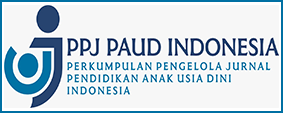
Author
Gatot Herry Djatmika(1
Administrasi Publik, Universitas Prof Dr Moestopo (Beragama), Indonesia(1)
| Article Analytic |
Published : 2023-03-29
Article can trace at:
 Article Metrics
Article Metrics
Abstract Views: 319 times
PDF Downloaded: 154 times
Abstract
Keywords
References
Asbari, M., Purwanto, A., Maesaroh, S., Hutagalung, D., Mustikasiwi, A., Ong, F., & Andriyani, Y. (2020). Impact of Hard Skills, Soft Skills and Organizational Culture : Lecturer Innovation Competencies As Mediating. EduPsyCouns: Journal of Education, Psychology and Counseling, 2(1), 142–155. https://ummaspul.e-journal.id/Edupsycouns/article/view/419
Azis, S. N. (2021). Tingkat Kecerdasan, Perilaku Belajar, dan Kompetensi Dosen dalam Peningkatan Pemahaman Akuntansi (Sarana Pendidikan sebagai Pemoderasi). JAK (Jurnal Akuntansi) Kajian Ilmiah Akuntansi, 8(2), 142–158. https://doi.org/10.30656/jak.v8i2.2540
Braßler, M., & Schultze, M. (2021). Students’ innovation in education for sustainable development—a longitudinal study on interdisciplinary vs. Monodisciplinary learning. Sustainability (Switzerland), 13(3), 1–17. https://doi.org/10.3390/su13031322
Budiningsih, I., Soehari, T. D., & Marlison, M. (2020). Hard Skill versus Soft Skill dalam Pencapaian Kinerja Karyawan Proyek Infrastruktur Mass Rapid Transit (MRT) Jakarta. Akademika, 9(02), 29–42. https://doi.org/10.34005/akademika.v9i02.895
Cherian, J., Jacob, J., Qureshi, R., & Gaikar, V. (2020). Relationship between entry grades and attrition trends in the context of higher education: Implication for open innovation of education policy. Journal of Open Innovation: Technology, Market, and Complexity, 6(4), 1–17. https://doi.org/10.3390/joitmc6040199
Fidalgo-Blanco, Á., Sein-Echaluce, M. L., & García-Peñalvo, F. J. (2018). Main: Method for applying innovation in education. ACM International Conference Proceeding Series, 806–813. https://doi.org/10.1145/3284179.3284313
Gunawan, W. (2021). Pelatihan Penulisan Abstrak: Upaya Peningkatan Kompetensi Dosen dan Mahasiswa dalam Publikasi Karya Ilmiah Internasional. Dimasatra: Jurnal Pengabdian Kepada Masyarakat, 1(2), 71–78. https://ejournal.upi.edu/index.php/dimasatra/article/view/39333
Hafiyusholeh, M., Lubab, A., Asyhar, A. H., Fanani, A., Farida, Y., Novitasari, D. C. R., Ulinnuha, N., Intan, P. K., Utami, W. D., Zuhri, Z., Arifin, A. Z., Yuliati, D., & Hamid, A. (2020). Pendampingan Guru Madrasah untuk Mewujudkan Kompetensi Pedagogik Guru Matematika yang Berdaya Melalui Penguasaan Soal High Order Thinking Skills (HOTS). Engagement: Jurnal Pengabdian Kepada Masyarakat, 4(1), 183–200. https://doi.org/10.29062/engagement.v4i1.97
Halász, G. (2018). Measuring innovation in education: The outcomes of a national education sector innovation survey. European Journal of Education, 53(4), 557–573. https://doi.org/10.1111/ejed.12299
Jauhari, M. I. (2020). Upaya Guru Fiqih dalam Meningkatkan Kompetensi Pedagogik di Madrasah. Tarbawiyah: Jurnal Ilmiah Pendidikan, 04(2), 205–214. https://e-journal.metrouniv.ac.id/index.php/tarbawiyah/article/view/2128
Kolleck, N. (2019). The emergence of a global innovation in education: diffusing Education for Sustainable Development through social networks. Environmental Education Research, 25(11), 1635–1653. https://doi.org/10.1080/13504622.2019.1675593
Lambriex-Schmitz, P., Van der Klink, M. R., Beausaert, S., Bijker, M., & Segers, M. (2020). When innovation in education works: stimulating teachers’ innovative work behaviour. International Journal of Training and Development, 24(2), 118–134. https://doi.org/10.1111/ijtd.12175
Mohajan, H. (2016). Munich Personal RePEc Archive Sharing of Tacit Knowledge in Organizations: A Review Sharing of Tacit Knowledge in Organizations: A Review. American Journal of Computer Science and Engineering, 3(2), 6–19. https://mpra.ub.uni-muenchen.de/82958
Murti, R. W., & Prasetio, A. P. (2018). Pengaruh Kompetensi Dosen terhadap Prestasi Akademik Mahasiswa Fakultas Ekonomi dan Bisnis Telkom University. Jurnal Penelitian Pendidikan, 18(2), 94–102. https://doi.org/10.17509/jpp.v18i2.12950
Muzenda, A. (2014). Lecturer s ’ Competences and Students ’ Academic Performance. International Journal of Humanities and Sosial Science Invention, 3(1), 6–13. https://www.ijhssi.org/papers/v3(1)/Version-2/B310206013.pdf
Nahdliyah, H., Tjahjani, J., & Shodiq, J. (2018). Kompetensi Dosen Dalam Mendongkrak Kualitas Penelitian Dan Abdimas Berbasis Hki. Seminar Nasional Unisla, 1–4. https://semnas.unisla.ac.id/index.php/SHA/article/view/228
Prasetio, A. P., Azis, E., Fadhilah, D. D., & Fauziah, A. F. (2017). Lecturers’ Professional Competency and Students’ Academic Performance in Indonesia Higher Education. International Journal of Human Resource Studies, 7(1). https://doi.org/10.5296/ijhrs.v7i1.10902
Ratnasari, S. L., & Thiyarara, O. A. (2020). Pengaruh Hard Skill, Soft Skill, dan Pelatihan terhadap Produktivitas Pegawai Peserta Pelatihan. Jurnal Bening, 7(2), 221–232. https://www.journal.unrika.ac.id/index.php/beningjournal/article/view/2421
Ritonga, M., Yulhendri, H., & Nora, S. (2021). Persepsi Mahasiswa Terhadap Kompetensi Dosen Pada Pembelajaran Era Disrupsi Industri 4.0. Research and Development Journal of Education, 7(1), 172. https://doi.org/10.30998/rdje.v7i1.9319
Rustiyanti, N. W. A. (2021). Kompetensi Profesional Dosen Prodi Pendidikan Jasmani Kesehatan dan Rekreasi Fakultas Keguruan dan Ilmu Kependidikan Universitas Mahadewa Indonesia. Journal Education & Science, 22(1), 127–142. https://ojs.mahadewa.ac.id/index.php/widyadari/article/view/1113
Santoso, B. P., Purwanto, A., Siswanto, E., Nuraeni Setiana, Y., Sudargini, Y., & Fahmi, K. (2021). Effect of Hard Skills, Soft Skills, Organizational Learning and Innovation Capability on Islamic University Lecturers’ Performance. International Journal of Social and Management Studies, 02(01), 14–40. https://ijosmas.org/index.php/ijosmas/article/view/5
Solihin, R., Iqbal, M., & Muin, M. T. (2021). Konstruksi Kompetensi Pedagogik Guru Dalam Pembelajaran. Jurnal Pendidikan Islam Dan Multikulturalisme, 3(2), 85–94. https://doi.org/10.37680/scaffolding.v3i2.1085
Subakri, S. (2022). Dimensi Kompetensi dan Produktivitas Tenaga Pendidik dalam Pelaksanaan Tridharma Perguruan Tinggi. Jurnal Qolamuna, 7(2), 213–228. https://ejournal.stismu.ac.id/ojs/index.php/qolamuna/article/view/509
Ummatqul Qizi, K. N. (2020). Soft skills development in higher education. Universal Journal of Educational Research, 8(5), 1916–1925. https://doi.org/10.13189/ujer.2020.080528
Wang, C., Chen, M. N., & Chang, C. H. (2020). The double-edged effect of knowledge search on innovation generations. European Journal of Innovation Management, 23(1), 156–176. https://doi.org/10.1108/EJIM-04-2018-0072
Yan, L., Yinghong, Y., Lui, S. M. (Carrie), Whiteside, M., & Tsey, K. (2019). Teaching “soft skills” to university students in China: the feasibility of an Australian approach. Educational Studies, 45(2), 242–258. https://doi.org/10.1080/03055698.2018.1446328
Yanthy, E., Sudiyono, R. N., Waruwu, H., Agistiawati, E., & Purwanto, A. (2020). Pengaruh Soft Skills Dan Hard Skill Terhadap Inovasi Guru Sekolah Islam. Refletika Educatia, 10(2), 365–383. https://jurnal.umk.ac.id/index.php/RE/article/view/4555
Refbacks
- There are currently no refbacks.

_2022_inPress.png)








